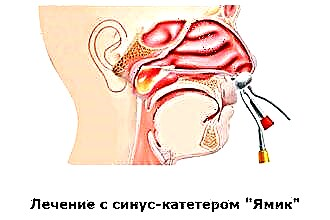 Organic aphonia is a consequence of the development of somatic pathologies that cause inflammation of the components of the voice-forming apparatus. The causes of voice disorders are so diverse that only a specialist can accurately determine the etiology of aphonia after examining the patient.
Organic aphonia is a consequence of the development of somatic pathologies that cause inflammation of the components of the voice-forming apparatus. The causes of voice disorders are so diverse that only a specialist can accurately determine the etiology of aphonia after examining the patient.
Violation of vocal functions is often associated with constant stress, hormonal imbalance, exacerbation of chronic diseases, the appearance of neoplasms in the larynx or banal overstrain of the vocal cords.
About anatomy
The vocal apparatus is a complex system, the functions of which are under the control of the central nervous system. It consists of several departments involved in voice education:
- the larynx is a sound generator;
- paranasal sinuses, bronchi, nasopharynx and trachea - sound resonators;
- teeth, lower jaw, muscles of the pharynx, soft palate and tongue - the articulatory section.
Any irregularities in the structure of the aforementioned systems negatively affect the voice and its sonority. Inflammation and disruption of the innervation of the vocal apparatus is a key cause of the development of functional or organic aphonia. It is worth noting that the causes of voice dysfunction may lie in the development of diseases of organs that are not directly related to the vocal apparatus. Some diseases of the cardiovascular, endocrine and nervous systems lead to a change in the timbre of the voice, the appearance of hoarseness, hoarseness, etc.
Respiratory diseases
If the throat does not hurt, this is not yet proof of the complete absence of inflammation in the airways.
Aphonia can occur against a background of exacerbation of chronic diseases that do not cause discomfort in the throat, but provoke inflammation of the larynx and vocal cords.
Why is the voice hoarse, but the throat does not hurt?
Infectious causes of impaired voice function most often include:
- chronic tracheitis - a bacterial lesion of the tracheal mucosa, accompanied by edema of the pharynx, bronchi and larynx;
- chronic laryngitis - a sluggish inflammation of the larynx, which leads to swelling of the vocal cords, as a result of which the voice may become hoarse;
- chronic pharyngitis - septic inflammation of the lymphoid tissues of the pharynx, which may involve the palatine tonsils, trachea, vocal folds, etc.
The lost voice can be restored only if the pathogenic agents in the larynx are completely destroyed and the swelling in the vocal cords is eliminated. Exacerbation of chronic diseases can be facilitated by hypothermia, hypovitaminosis, tobacco smoking, irrational intake of hormonal and antimicrobial agents, etc.
Throat growths
What is the reason for the lost voice, and the throat does not hurt? The appearance of benign and malignant neoplasms in the airways can lead to the development of aphonia. As a rule, in the initial stages of tumor growth, the patient does not complain of pain or discomfort in the throat.
With the progression of the disease, patients may complain of a feeling of squeezing of the pharynx, hoarseness, shortness of breath, etc. Such symptoms can be a consequence of the development of pathologies such as:
- laryngeal papilloma - benign tumors that form from squamous epithelial cells when the body is damaged by the papilloma virus; in the process of growth of neoplasms, the voice gradually "sits down" and can completely disappear;
- pachyderma of the larynx - white-gray plaques that form on the vocal folds that interfere with normal breathing and lead to impaired voice formation;
- fibroma - a tumor of a dense consistency, which is formed mainly at the edge of the vocal fold;
- "Singing" nodules - symmetrical neoplasms on the vocal folds, formed from connective tissue; occur mainly in people of "voice" professions;
- polyps are benign growths that often develop from singing nodules.
Some benign neoplasms tend to become malignant, therefore, pathologies need to be treated in a timely manner.
It is possible to accurately determine the causes of aphonia and the nature of neoplasms only after the delivery of biomaterials for histological analysis and biopsy. Tumors can grow to a large size, which is fraught with not only voice impairment, but also hypoxia.
Laryngeal paralysis
Why does my voice disappear? With impaired innervation of the muscles of the larynx, a disease such as paresis of the vocal cords or larynx develops. The causes of myogenic paralysis can be different. As a rule, the development of pathology is facilitated by:
 toxic damage to the nerves by infection;
toxic damage to the nerves by infection;- violation of metabolic processes;
- vascular atherosclerosis;
- mental disorders (hysteria);
- aortic aneurysm;
- brain damage;
- septic inflammation of the muscles of the larynx;
- professional factors (overload of the vocal cords).
If the voice is lost due to paralysis, patients will complain of accompanying symptoms such as frequent choking of food, diminished sound of the voice, shortness of breath and dizziness.
By origin, two types of laryngeal paralysis are distinguished:
- myopathic - a violation of the innervation of the muscles of the larynx;
- neurogenic - a violation of the conduction of nerve impulses from the larynx to the corresponding parts of the brain.
Untimely treatment of paresis of the larynx entails ankylosis, in which there is a persistent violation of the vocal function.
The occurrence of "wheezing" breathing is a good reason for seeking medical attention. The symptom indicates a narrowing of the glottis, which over time can close completely and provoke acute asphyxia.
Endocrine Disorders
The voice can become hoarse due to the development of endocrine diseases. Not so long ago, experts have established a connection between voice dysfunction and thyroid pathologies. The development of diseases is evidenced by rapid fatigue, narrowing of the sound range, hoarseness and general malaise.
The defeat of the thymus (thyroid) gland leads to an increase in its size and compression of the larynx. Subsequent circulatory disorders entail tissue edema and, accordingly, the development of aphonia. Endocrine pathologies leading to disruption of the voice-forming apparatus include:
- hypothyroidism - a lack of hormones of the thymus gland, which leads to gelatinous edema of the vocal folds;
- diffuse goiter - a pathological enlargement of the thyroid gland, leading to a decrease in the timbre of the voice or a feeling of squeezing of the larynx;
- hyperthyroidism - an overactive thyroid gland, which leads to an increase in the concentration of hormones in the body and the occurrence of edema in the airways.
The reasons for the hoarseness of the voice may lie in the dysfunction of the adrenal cortex. Disruptions in the work of the adrenal glands entail a rapid depletion of the voice, which is exacerbated in the evening. With hyperfunction of the adrenal glands, the throat may not hurt, however, the development of pathology will be evidenced by an obvious narrowing of the voice range.
Aphonia may be the result of the development of hormonal disorders, which are useless to treat with rinsing, inhalation and symptomatic medications.
Other reasons
Why can the voice disappear if there are no symptoms of sore throat? There are many non-infectious causes of impaired voice function. The causes of aphonia lie in overstrain of the vocal cords, allergic edema of the mucous membranes of the respiratory system, congenital abnormalities of the vocal apparatus and injuries.
Spastic aphonia is a common phenomenon that has a neurogenic origin. In the case of the development of pathology, the vocal cords contract involuntarily, which becomes the cause of "squeezing" and a decrease in the timbre of the voice. The most likely causes of the problem include:
- tobacco smoking;
- constant stress;
- eating spicy foods;
- mechanical injury;
- damage to the laryngeal nerves;
- high speech load;
- mental disorders;
- neurological diseases.
What if the voice is hoarse?
A short-term lack of voice is not a good reason for seeking help from a doctor. But if the hoarse voice does not recover within 3-4 days and the symptoms of the disease only worsen, it is necessary to make an appointment with the phoniatrist.
Only after examining the patient, the doctor will be able to establish the cause of the pathology and prescribe adequate treatment.

 toxic damage to the nerves by infection;
toxic damage to the nerves by infection;

